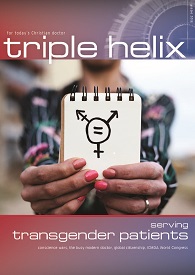2 ,500 years ago, a man with a good job, in a well-developed country heard a report about the great needs in Jerusalem, where there was oppression, economic hardship and low morale. He had probably never been there and was used to hearing of the problems of that land, but this report was different. God spoke to him and he wept. (1)
God continues to speak to medical personnel, calling them overseas into rural situations. But for those considering a surgical career, it may seem impossible to gain appropriate training and experience to deal with the wide ranging and often advanced conditions they will encounter.
UK surgical training has undergone major changes in the last 50 years. Back in the day, a senior registrar could deal with anything from a ruptured aneurysm in a 75-year-old to a pyloromyotomy in a six-week-old and from a wedge excision of an ear to a radical nephrectomy. These surgeons were not only the backbone of district hospitals in the UK, but with very little further training could operate anywhere in the world. But now, an ST8 trainee with a Certificate of Completion of Training (CCT) in colorectal surgery will be highly skilled in laparoscopic bowel resection but may never have worked in a urology unit, is unlikely to have any paediatric surgery experience, and will not expect to have to deal with any vascular or breast cases.
These problems have been recognised in the Greenaway report, (2) leading to the Royal College of Surgeons publishing the document: Improving Surgical Training. (3) The Joint Committee on Higher Surgical Training (JCHST) are finalising a new surgical training curriculum in response. The aim is to make all CCT holders more able to handle a surgical take in a large district general hospital or teaching hospital, but the new curriculum remains unlikely to equip most trainees with further operative experience in subspecialties such as urology or paediatric surgery and will certainly not cover orthopaedics or gynaecology and obstetrics.
So where does this leave students and Foundation Year doctors who are interested in serving God in a rural situation in a low or middle-income country? Is a career in surgery no longer a sensible choice? And where do surgeons train who want to work for other international organisations? The Lancet Commission on Global Surgery describes basic life-saving surgery that every district hospital in the world should be offering, including caesarean section, laparotomy and treatment of compound fractures (Bellwether procedures). (4) These have been chosen only as markers of the huge variety of surgery required in remote areas.
But where do surgeons who develop this sort of wide repertoire of surgical skills then fit back into the NHS? All general surgical consultant adverts in UK require a subspecialty interest, although an increasing number describe emergency surgery as making up a significant component of the job. While emergency surgery, with little or no elective work may suit some, it is not an ideal choice for a surgeon returning to the UK for their children's higher education. Nor does this type of job allow continued practice across the surgical specialties.
A solution closer to home?
A need for remote and rural surgeons has existed in the Highlands and Islands of Scotland for many years. Originally single handed surgical units, these included other areas of the UK such as Penzance, the Isle of Man, Arran, and rural areas of Northern Ireland. Six units remain in the UK and are now designated rural general hospitals, with up to three surgeons covering most aspects of general surgery.
To attract and equip surgeons to work in these posts, a post CCT fellowship in Remote and Rural Surgery based in Inverness or Aberdeen has been available for over 20 years. Senior surgical trainees, with a CCT in colorectal or upper GI surgery may spend one to two years rotating through urology and orthopaedics, with shorter attachments to other relevant surgical specialties.
Scottish core surgical trainees can spend six months in a rural general hospital where they are exposed to a wide variety of surgery and have one-to-one training with a consultant. The new Improving Surgical Training curriculum is yet to be launched but it is expected that it will include a four-month remote and rural module. Training for remote and rural surgery is recognised and supported by surgical colleges and other specialties (5) and international volunteering is being actively encouraged within the NHS. (6)
While the traditional pinnacle of surgical training remains in the realm of the subspecialist in a large teaching hospital, there is increasing support and recognition for the generalist. Surgical trainees with clear purpose, determination, and a good dose of humility for post CCT training in other specialties can achieve a God-given calling to serve in the developing world on a short or long-term basis. And if the time comes for a return to the UK, general surgical posts are still available in the Highlands and Islands.
Gordon McFarlane is a consultant general surgeon in Shetland, Gilbert Bain Hospital. [email protected]
1. Nehemiah 1:4
2. Greenaway D. Shape of Training: securing the future of excellent patient care. General Medical Council October 2013 bit.ly/2A6KjR7
3. Improving Surgical Training. Royal College of Surgeons October 2015. bit.ly/2t6ctVu
4. Meara JG, Leather AJ, Hagander L et al. Global Surgery 2030. The Lancet Commissions bit.ly/2EdZmfx
5. Standards informing delivery of care in rural surgery. Royal College of Surgeons of Edinburgh March 2016. bit.ly/2QGR4OK
6. Global Citizenship in the Scottish Health Service. RCPSGlas May 2017. bit.ly/2zsAg8t































